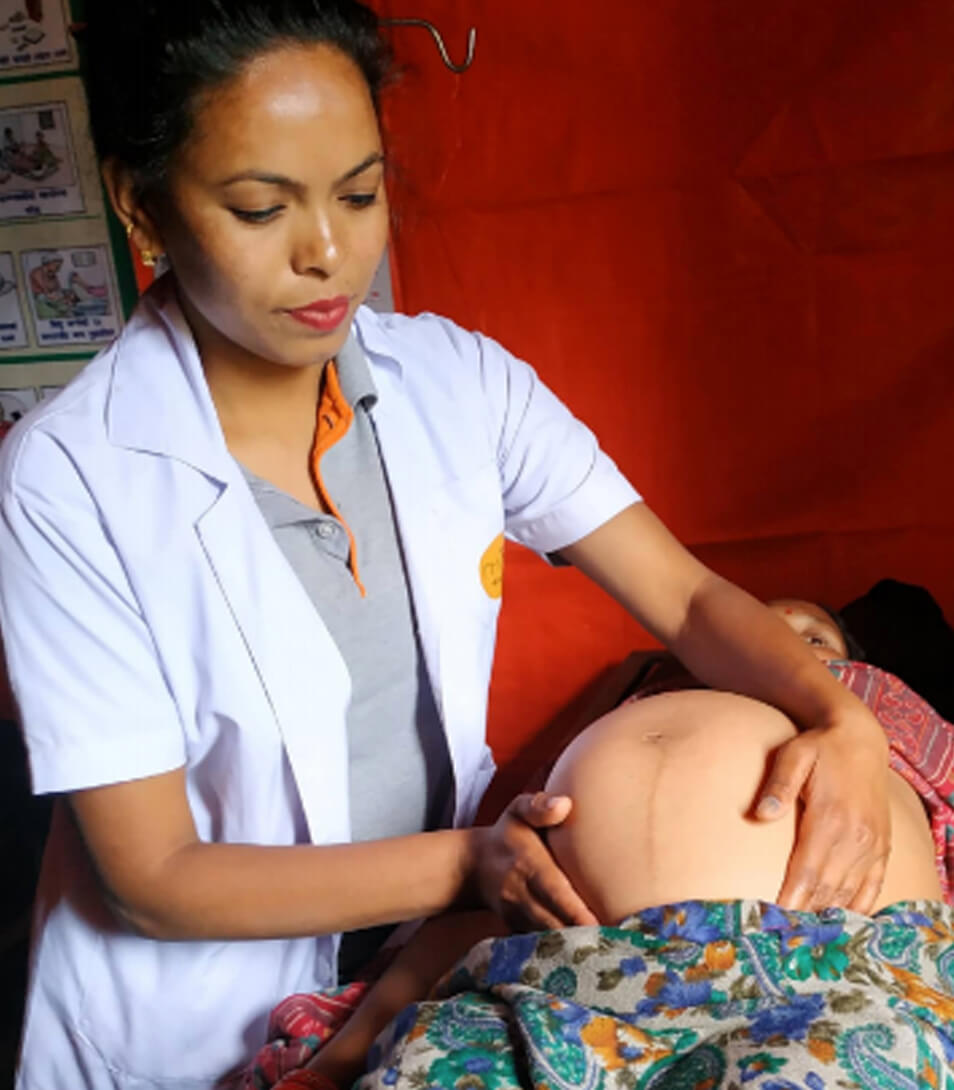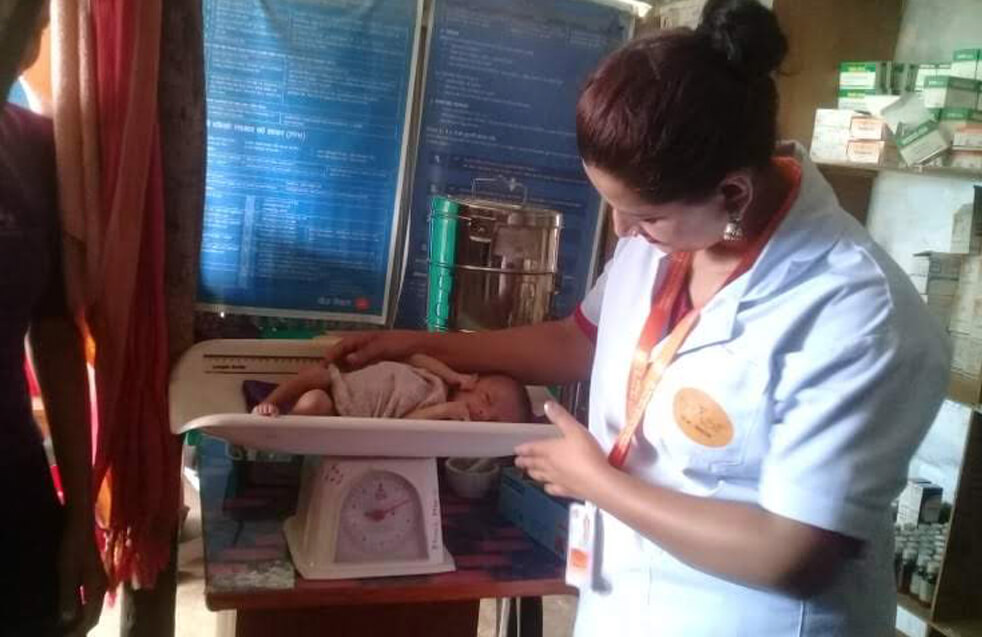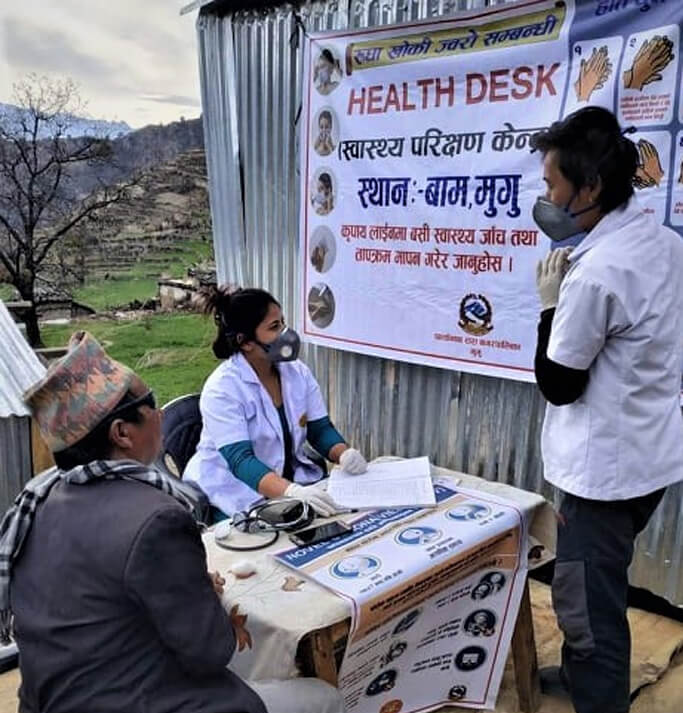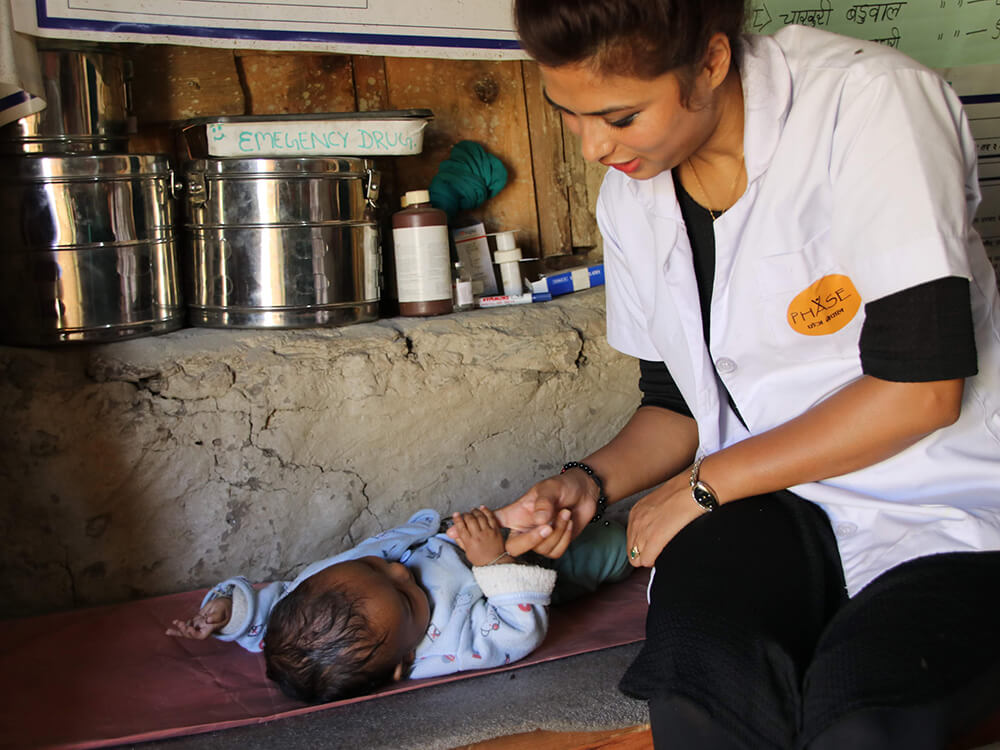by Corinne Yank, GoPhil Communications Manager
After several cases of COVID-19 were confirmed in Nepal on March 24th, the government ordered a mandatory lockdown to prevent ongoing spread of the virus. With public transportation and many social services grinding to a sudden halt, rural communities in Nepal are more isolated and cut off from support than ever before. In the face of so many challenges and uncertainties, the highly-dedicated and courageous frontline team at PHASE Nepal are continuing to do everything in their power to keep the most essential, life-saving services up and running in these rural areas.
Before diving into the impacts of COVID-19 in more detail, allow us to highlight some of PHASE Nepal’s recent achievements during their last reporting period.
- 8,302 patients were treated in three PHASE Nepal supported health posts;
- 1,768 children below the age of 5 were treated for various health problems;
- 377 emergency cases were handled and 111 of them were referred to hospitals;
- Antenatal care services were provided to 329 pregnant women;
- 169 babies were delivered;
- Postnatal care services were provided to 158 mothers and 158 newborn examinations were carried out;
- The health team provided family planning services to 790 couples;
- 12,878 community members participated in 1,130 different awareness activities;
- Nutrition of children under the age of 5 improved dramatically with 92% found to be a healthy weight.

The number of community members depending on PHASE for services is simply staggering. What the PHASE Nepal team has accomplished despite working in such remote and resource-poor communities offers us hope for the additional challenges of the present moment.
Auxiliary Nurse Midwives Save Lives
PHASE recently came into contact with a mother of three living with her husband and in-laws in a rural highland community in the Mugu District. The entire family is dependent on farming, and the agricultural production is hardly sufficient to feed them all. A locally-based PHASE Auxiliary Nurse Midwife met this mother when she was pregnant for the 4th time and encouraged her to come into the PHASE clinic for an antenatal check-up.
During the check-up, the nurses identified a problem: the baby was in a transverse position. They explained the condition to the mother and advised her to seek immediate treatment at the district hospital. Unbeknownst to PHASE, the mother did not go into the hospital, but returned to the PHASE clinic weeks later when she started to experience vaginal bleeding and pain. Again, she refused to go to the hospital for treatment despite PHASE urging her to do so. Shortly after, the woman went into labor and PHASE was called to deliver the baby.

The PHASE team managed to deliver the baby, but there were complications: the baby’s respiration was almost absent, one hand was prolapsed, and there were signs of hypothermia. They attempted to clear the baby’s airways and provided artificial respiration, with some initial success. After two long and stressful hours of care, the baby finally cried and began to breathe normally. PHASE advised the mother to breastfeed the baby, keep warm, and come into the clinic for regular check-ups. Without PHASE services, the mother and baby would likely not have survived the delivery.
This is just one example of the 169 deliveries carried out by PHASE in the last reporting period.
Current Situation in Nepal
As the only source of primary level healthcare and information in so many remote communities, PHASE services are more important and in-demand than ever before. Fortunately, the PHASE Nepal team managed to get informational and essential Personal Protective Equipment (PPE) materials out to the rural communities before the lockdown was ordered.
“At this time of uncertainty, we remain committed to deliver services to the best of our ability while prioritizing welfare of our staff and community at all times.”
– PHASE Nepal Team

The PHASE Nepal team sent us the following details about their response and the precautions they have put in place as a result of COVID-19:
- PHASE Nepal’s health team is working and trying their best to support the communities in this moment of emergency. They have been trained with special precaution measures they should take while handling any patients who visit the health posts in this time of pandemic and they will give focused orientation about COVID-19 to particularly vulnerable groups.
- All PHASE supported health centers have backup medicines for at least six months, and essential medical supplies for two months. Emergency personal protective equipment such as N95 masks, surgical masks and hand sanitizers for the staff has been already sent to the respective areas.
- For the time being, all community activities in large groups and training has been cancelled till further notice.
- PHASE Nepal’s bi-annual meeting which would gather 200+ staff and board members has been cancelled.
- Staff Contingency Plan is operational with prevention and outbreak plans.
Thankfully, PHASE also reported that all their staff are safe and coping as well as can be expected at this time.
In contrast with most other NGOs working in highly rural areas, PHASE medical and program staff actually live in the remote communities where they work. Living and working alongside community members and leaders allows them to develop strong, trusted connections and a deep understanding of local needs. This means that, especially in times of crisis, community members turn to PHASE frontline staff for answers, leadership, and support. More than ever, GoPhil and PHASE appreciate and ask for your support, trust, and solidarity.
In response to this global crisis, we have launched a Rapid Response Fund to respond to GoPhil partners’ and their communities’ most urgent needs.
